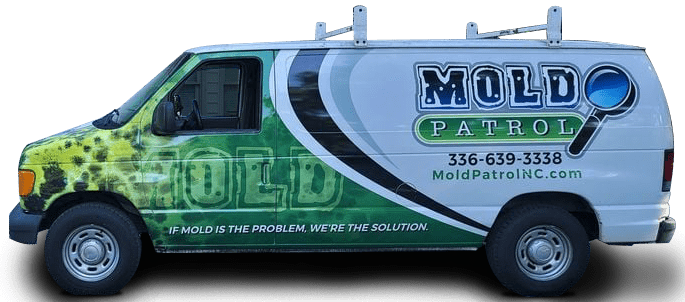The Basics of Mold Allergies
The primary symptoms for mildew allergies can vary from person to person and are often difficult to differentiate from the symptoms of respiratory diseases, or the common cold. Because of this, it is vital to understand the mechanisms of mold allergies. Learn more about the symptoms of mold allergies.
Mold spores can be an environmental allergen
The spores of mold can trigger allergic reactions , and may even cause asthma attacks. They react with other environmental pollutants and volatile chemicals in the air to trigger these symptoms. Individuals suffering from mold allergies should seek medical attention as soon as possible if they feel their symptoms are getting worse.
Everyone is at risk for reaction to mold-related allergies Some people might be more sensitive to them in comparison to others. These individuals may be prone to a weakened immune system, have a history of allergies or chronic obstructive lung disease, or reside in an environment that is humid.
In addition to an examination of the skin, doctors may also conduct blood tests to find out if someone is sensitive to particular types of mold. These results can be used to help make an assessment of the costs and difficulty of remediation of the indoor surroundings. Medical professionals will also consider a patient's personal health history and work environment they are involved in, hobbies or other activities that expose the individual to mold and other factors.
Molds are microscopic fungi that can be found both indoors and outdoors. They thrive in moist warm, humid conditions and are able to spread through the air. While some individuals might be allergic to a particular type of mold, others are likely to be allergic to all kinds of mold. The severity of allergies to mold can range from mild to severe.
In the absence of proper sanitation, mold spores are able to cause respiratory problems and skin irritations. They can also be a significant contamination in food products. Allergy sufferers should stay clear of exposure to these types of molds.
They may cause lung infections.
If you live in an area with a large amount of exposure to mold, you could be at risk of developing lung infections and allergies. Mold allergies can trigger lung inflammation and interfere with the normal function of your lungs. In the end, there could be respiratory symptoms, such as coughing, shortness of breath and wheezing. Some people may even develop asthma. If you exhibit some of the above symptoms, you should consult a doctor immediately.
If you suspect you might be suffering from an allergy to mold, consult an expert for a thorough diagnosis. Your doctor will examine the medical records of your patients and ask about the symptoms you are experiencing. If you have an immune system that is not functioning properly or you suffer from other respiratory ailments, your doctor may suspect that you suffer from ABPA. Your doctor might also request samples of lung tissue or fluid to test. Also, your physician may also perform a blood test to look for fungal spores.
The people who suffer from mold allergies may be afflicted by a range of respiratory symptoms, such as the respiratory symptoms of asthma as well as pneumonia. While some people will be able to feel immediate reactions to mold spores, others might take a few days before they experience a full-blown reaction. In some instances exposure to mold spores could cause allergic asthma, which is when the immune system reacts too strongly to the mold spores.
The symptoms associated with exposure to mold are like those of flu, cold, asthma, and pneumonia, but a medical professional is able to distinguish between the two. The first step to treat an allergy to mold is to limit any exposure you have to substance. Alternatively, if you suspect that you have a mold allergy then your doctor might suggest medication that helps reduce the amount of exposure you have to the allergen.
They could trigger asthma
For those who are susceptible, mold allergies can trigger asthma attacks. The fungi that cause asthma are widespread indoors that thrive in dark, moist environments. There are some molds that cause allergic reactions, though. Anyone who spends a considerable amount of time at work or living in environments with excessive mold might be at greater chance of experiencing allergic reactions.
People with mold allergies have lower lung function, more hospitalizations and asthma-related diseases than those with no allergies to mold. The immune system interprets mold spores to be a threat and reacts by boosting mucus production and susceptibility to allergens. In the end, symptoms are chest pain, breathlessness, and wheezing.
A blood test will confirm whether or not you are sensitive to the mold. For a test to determine whether you suffer from mold allergies, your doctor will collect blood samples and perform an allergy-specific IgE test for antibody. Test results will be utilized to determine the best treatment. Depending on your age and the kind of mold that you have, a doctor may recommend a medication to help you manage the symptoms.
To reduce the possibility of suffering from asthma caused by mold It is important to limit the amount of humidity within your home. Ideally, humidity levels are 50 percent , or even less. A proper ventilation system is also essential. In the event that your house is humid an exhaust fan can reduce the humidity levels. It's also vital to keep bathrooms spotless and dry. Also wearing a face mask is advised whenever you're outdoors.
While the signs of mold allergy may vary from person to person, they're usually similar to symptoms of hay fever. The symptoms include stuffy noses as well as coughing and sneezing. Anyone suffering from a mold allergy may have these symptoms in a single instance or over time. If you're experiencing these symptoms year-round, it's important to visit your doctor to confirm you're not suffering from more serious condition.
They can cause anaphylaxis
Anaphylaxis is often a severe medical condition. It can occur if you're allergic or sensitive to mold or other allergens. It is possible to feel the symptoms immediately or it may take a few days for symptoms to manifest. If you notice symptoms lasting for longer than a few days, you should see an expert. Your doctor will conduct a variety of tests to confirm your allergy. Tests using skin pricks, or IgE antibody testing, will check for the presence of specific allergens in your blood. These tests will also help identify an allergic reaction from an infection.
Anaphylaxis is caused by the immune system's overactive response in response to mold spores. Your body responds by releasing histamine, which causes itchy eyes, sneezing and itching. Some people are particularly sensitive to mold and will suffer symptoms from the moment they are exposed. Anaphylaxis is a life-threatening allergic reaction that needs to be treated as soon as it is detected.
If you suspect you are susceptible to mold allergies, make sure you wear protective equipment while cleaning. Wear goggles, gloves, and a mask in order to prevent allergic reactions. If you have serious symptoms seek out a doctor or an asthma nurse for assistance. An antihistamine prescription may aid. If your symptoms worsen it is recommended to get an allergy test.
Anaphylaxis is a potentially life-threatening allergic reaction that affects the entire body. It can occur after exposure to an allergen for instance, a bee's sting. When the reaction is severe your airway can become blocked. Also, you may experience hoarseness or coarse breathing sounds.
People who are sensitive to mold could experience a variety of symptoms based upon the level or severity. Mild symptoms may include runny nasal congestion and a runny nose. But if you're exposed to a high concentration of mold, your symptoms could become more serious. Some people may even develop pneumonia.
They can be treated by immunotherapy
Fortunately, immunotherapy can be a great way to treat mold allergies. Allergists use tests that have been validated clinically to determine the source of the mold allergy that triggers your reactions. These tests assess the levels of IgE antibodies that are specific to an allergen. By focusing these antibodies, doctors can create a successful treatment plan.
While mold allergies affect almost everyone, people with compromised immune systems are at higher risk of developing allergies. People with compromised immune systems might have a history of allergies or respiratory ailments such as asthma or chronic obstructive lung disease. They may also reside in a humid area or work in a location with excessive humidity, or are exposed to mold on a regular day basis.
The effectiveness of the treatment depends on a range of factors. The first is that patients must be adequately educated and advised about the nature of their condition. They should be made aware that the condition could last for the rest of their lives, and they should work together with their doctor to discover how to handle the symptoms. It is also important to understand that the patient's participation is essential to the success of treatment. For this reason, it is suggested to provide patients with books and pamphlets concerning mold allergies.
The principal goal of the immunotherapy is to induce an immune response to a specific allergen. This is achieved through injections which contain the allergen. The allergist starts by administering a very small dose , and then gradually increases it until the patient becomes resistant against the allergy. This process is called the build-up phase. In the build-up stage, the allergen is slowly introduced into the body. it is hoped that this will boost the immune system and de-sensitize that system from the allergen. When this is accomplished it is time to begin the maintenance phase. This is typically two to 4 weeks in between the injections.
Allergy immunotherapy can be best administered by physicians who are fully certified. However, it is essential to choose an allergist you trust. Additionally, your doctor must be able identify the allergens that are causing your symptoms. A reliable allergy test is necessary to determine which allergens are best potential candidates for immunotherapy.
|
Phone +13366393338
|
|
| Address: 4175 Burch Bridge Rd, Burlington, NC 27217, United States |

